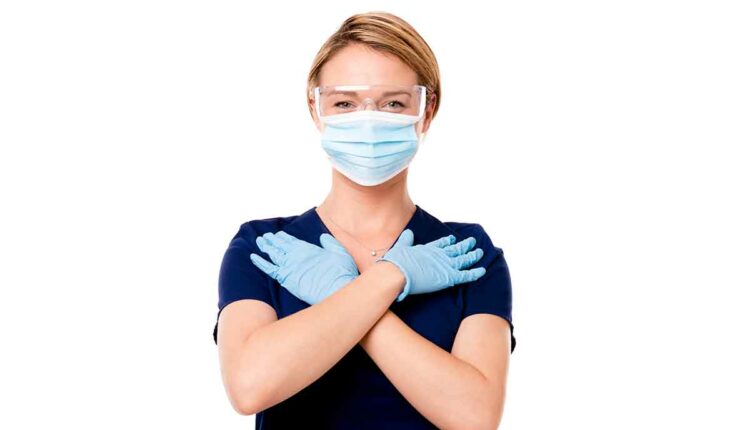 EHSTOCK/ISTOCK/GETTY IMAGES PLUS
EHSTOCK/ISTOCK/GETTY IMAGES PLUS
How Can Dental Practices Better Serve Patients Who Are Deaf?
Patients who are deaf are more likely to have difficulty securing dental appointments than the general population, according to a study that found dental clinics were six times more likely to deny a new patient request for an interpreter-related reason than primary care clinics.
Patients who are deaf are more likely to have difficulty securing dental appointments than the general population, according to a study that found dental clinics were six times more likely to deny a new patient request for an interpreter-related reason than primary care clinics. Findings from the joint Idaho State University and Idaho Council for the Deaf and Hard of Hearing study identify an opportunity to train clinical staff to respond appropriately to requests for accommodations. It is hoped this will help bridge the gap in access to care.
“Historically, we have known access to medical and dental care has always been a challenge for the deaf, but up until this point we never had the research or the data to back that up,” explains Steven Snow, MA, executive director for the Idaho Council for the Deaf and Hard of Hearing in Boise. “I am hoping we can establish training, and oral health professionals will be willing to educate themselves knowing that it really is an issue.”
The cross-sectional study, “Comparison of Access to Primary Care Medical and Dental Appointments Between Simulated Patients Who Were Deaf and Patients Who Could Hear,” published in JAMA Network Open, found patients who are deaf and request American Sign Language (ASL) interpreter services at appointments experience diminished access to care at primary dental and medical clinics. However, as noted, researchers found dental clinics were more likely to deny requests for an interpreter than primary care facilities.
Following a call script, eight stimulated patients (four who were deaf and four who could hear) called 334 primary care and 111 dental care clinics in Idaho requesting a new patient visit. Stimulated patients who were deaf also requested interpreting services for their new patient appointment. Of the 1,096 calls made between June 7 and December 6, 2018, stimulated patients who were deaf successfully scheduled new patient appointments on 161 occasions (49.1%), whereas calls made by stimulated patients who could hear were successful on 210 occasions (64.4% ) when requesting a new patient appointment.
Among 80 unsuccessful requests made by patients who were deaf, 48.2% were associated with a request for an interpreter. Among these denials, dental clinics were more likely than primary care clinics to have an interpreter-related reason for not scheduling the appointment, according to the study.
Snow believes education is key to improving access to care for patients who are deaf or hard of hearing. “We’ve noticed dental offices in comparison to primary care facilities receive less request for interpreters, so they may not have that system in place or be familiar with how to request an interpreter,” he says.
Many deaf individuals may not request an interpreting service during recare appointments or new patient appointments because they are not aware of all the treatment planning that occurs during these visits, he says. It’s not until they have a complex dental issue or require more invasive treatment, such as a dental implant or root canal, that they will request an interpreter because they know more communication is needed between the patient and dentist.
As a deaf person who was accompanied by his parents during dental visits as a child, Snow never understood why the dentist was probing his gingiva or what the dental hygienist was applying to his teeth. He did not fully grasp all that was accomplished during recare visits until he was treated by a dentist who was deaf. “There was so much I was unaware of in those dental appointments. I didn’t realize so many individuals, even during simple prophylaxis, received so much more information than I did,” he says. “I got to experience a fully accessible appointment.” The experience led him to request interpreter services during dental appointments where specific procedures were being done or he knew more communication was required.
Oftentimes, when patients do make the request for an interpreter they are denied or asked to bring someone with them to interpret. Many patients avoid making that request for these reasons or forgo treatment, says Elizabeth Schniedewind, EdD, clinical associate professor at Idaho State University in Meridian, and the study’s lead author.
“Communication with your clinician is the hallmark to getting great care,” says Schniedewind. “The first dental appointment is very communication-intensive, and deaf people are routinely denied to participate in treatment planning.”
Studies have shown health literacy of deaf people is significantly lower than patients who can hear. This loss of communication may result in patients not receiving education on the importance of optimum oral health, oral hygiene practices, or a full understanding of the oral-systemic link.
Dental offices can improve access to care for patients who are deaf by ensuring the office can accommodate these individuals. To improve access to care for these patients, investigators suggest dental offices train clinical staff to respond appropriately to requests for accommodations and establish a policy procedure that provides front office staff with a manual on who to contact and how to get interpreting services when requested by patients who are deaf or hard of hearing.

